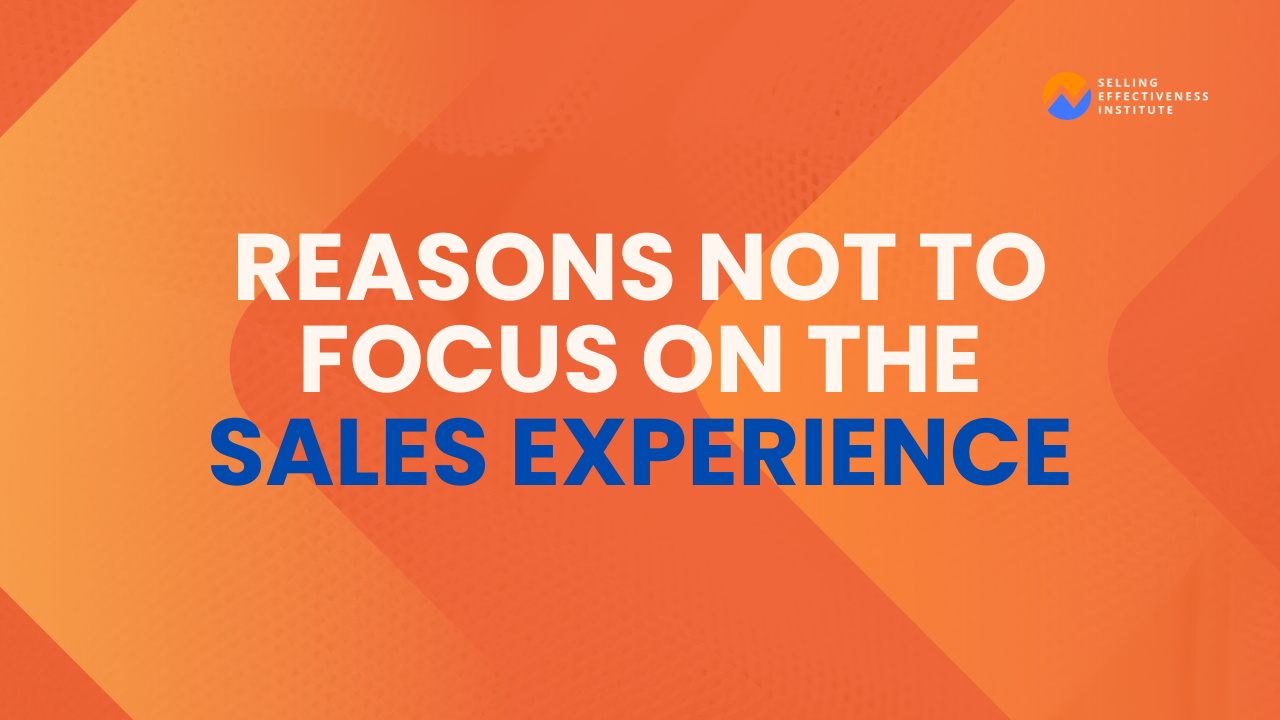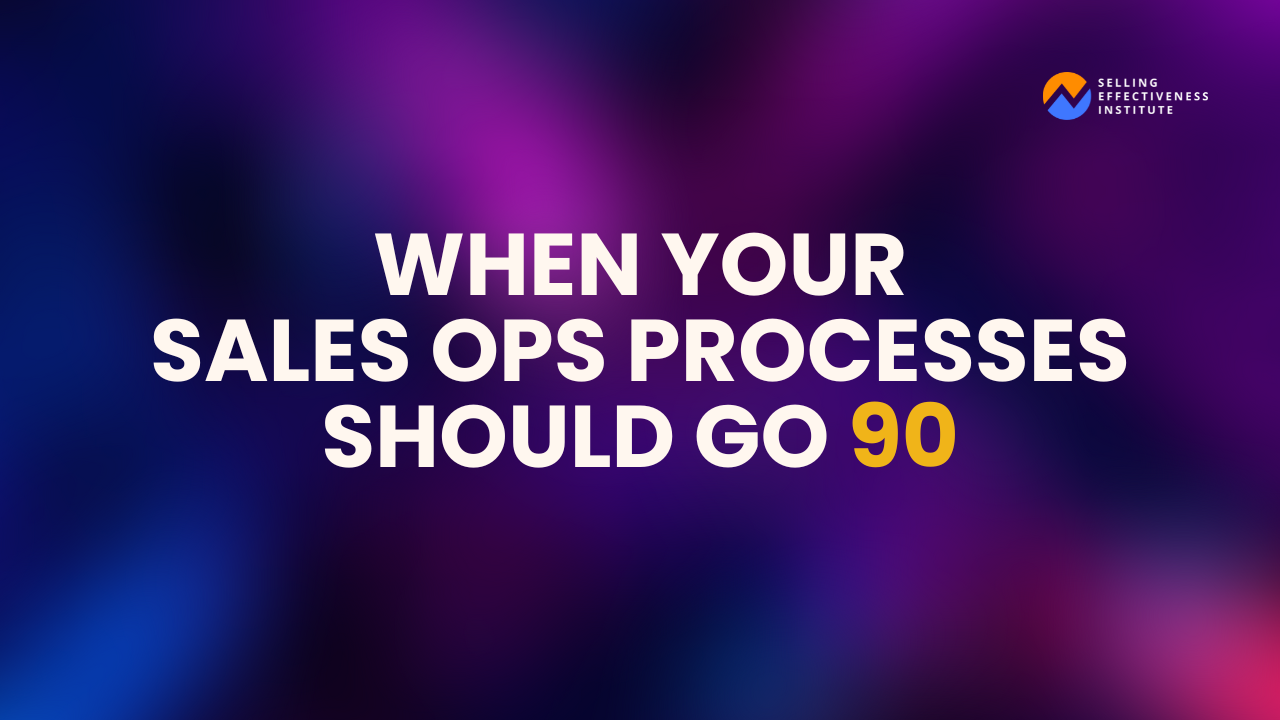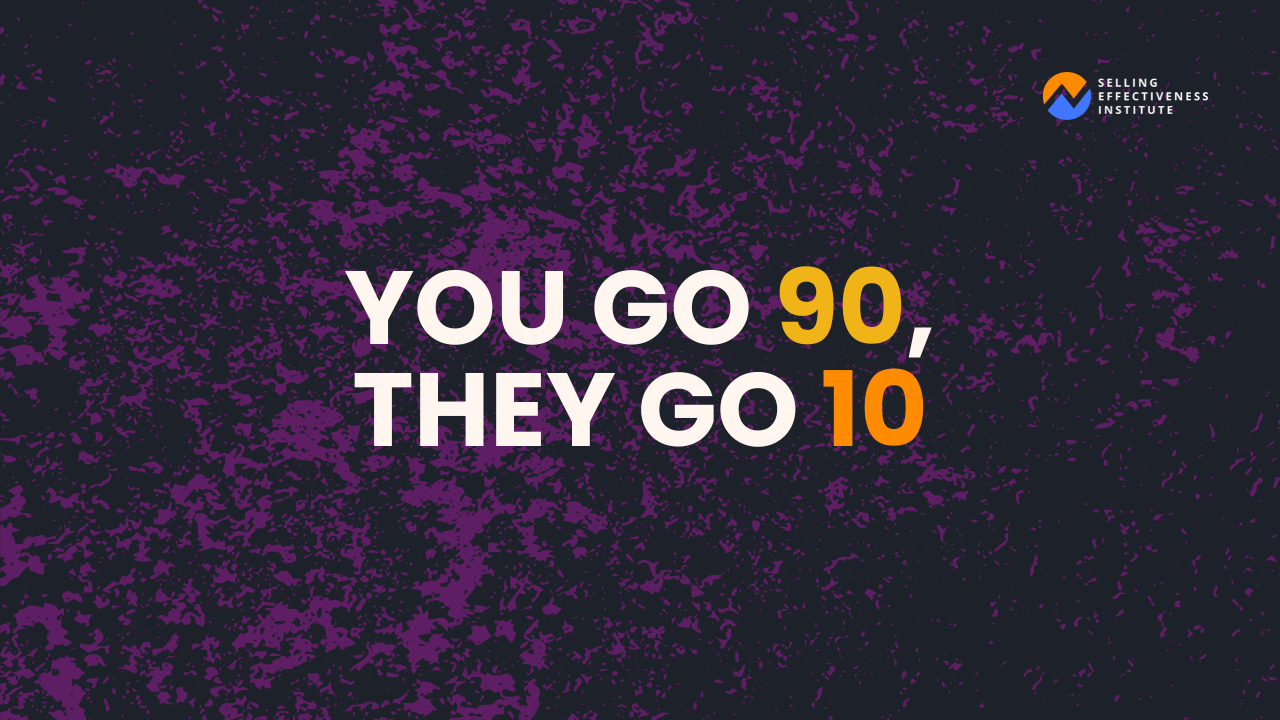How can today's salespeople effectively navigate information overload, build trust, and make meaningful connections in a rapidly evolving sales landscape?
E137: Crillin’ It with Mark Kosoglow – Part 4 of 4
This is the last installment of the conversation I had with Mark.
In Part 4, Mark and I talk about:
- Providing your customer with killer information
- Who your customers actually trust
- Watching out for confusion and change management overload
- Winning requires being curious plus not stopping until you are done
- How to hire great sales reps
- Grit
Download The Power of Authentic Persuasion ebook
Enroll in the Authentic Persuasion Online Course
Connect with Jason on LinkedIn
Connect with Mark on LinkedIn
Mark’s Info:
As a teenager, watching 14 videos in the back storeroom on a 7″ black and white TV to learn how to sell shoes at the mall was a great foundation. Running a small business with 200+ employees taught me how to be organized. Creating a highly profitable sales territory from one dead for a decade was hard work. Managing 12 salespeople across 9 states cemented my sales philosophy.
Building a sales team with, by far, the best, smartest, hardest working people I’ve ever worked with…well, that’s an honor and privilege I get to enjoy every day.
LinkedIn: https://www.linkedin.com/in/mkosoglow/
Twitter: https://twitter.com/GIDselling
Website: http://www.getitdoneselling.com/
Also check out: https://www.outreach.io/
-
Show Transcript
Jason: Welcome back to another episode of the sales experience podcast. My name is Jason Cutter and welcome to the final part of my conversation with Mark Kosoglow. We are talking sales engagement experience hiring in this episode, recruiting what it looks like to find a good salesperson. If you’re a salesperson, you’re looking for a job and you want to know how to land a good sales role at a great company, Mark is going to give you some gems on what that looks like, what the right fit is, and again, this is not about you selling yourself on why you could be a good fit or understanding the rules of the game so you can play the game and game the system in order to get your foot in the door. But this is more of if it’s a good fit. If you have these attributes, what Mark and I are going to talk about in this final section, you know that one is key and also if you have the real talents and abilities and the desire to be successful versus unsuccessful in a sales role.
Jason: Because one of the things is, and we don’t touch on it in this episode, is the fact that a lot of salespeople can get their foot in the door, can sell themselves. They get started and then what happens when the rubber’s not really hitting the road and the results aren’t there? That’s where a lot of salespeople end up getting, let go, getting fired, getting moved, getting discipline, things like that. So that’s not the goal of this. The goal isn’t to help you game the system to be able to get your front door. It’s for you to identify, are you that kind of person who wants to work in sales, work hard, have the right attributes, be curious, and then create a connection and communication with somebody. So enjoy this part four and I will see you at the end.
Mark: I just read this awesome Gardner report for CSOC for last quarter. It talked about 89% of buyers say they get great information in a sales call. So if you think that you’re going to give, you’re going to differentiate yourself by giving better or more accurate information. You’re wrong because almost 90% of people say they get great information. So that’s table stakes. That’s not a differentiator anymore. It used to be a differentiator. Then 66% of those, and Jason, this is like the one that kind of blew my mind. 66% of the people say they trust both vendors. So guess what? You’re not going to build a better relationship and that the information that those vendors give contradicts. And so you’re leaving this buyer in this state where, uh, you know what? I trust my brother, I trust my sister, but I feel like they’re both lying.
Jason: Somebody’s lying, somebody’s lying about something cause the stories don’t match.
Mark: That’s exactly right. So what does a buyer to do in that situation? Right. And that’s where it was getting more and more complex is because the amount of information that continues to pile up, the more information that you have, it makes sense that the more of it would contradict. And so I think that that’s where this Gardner report says that that a new type of seller is evolving, which is a sense maker, someone that can make sense of all the information for the buyer so that they don’t have to do all the work of trying to make it make sense on their own.
Jason: Yeah. Then that makes sense. I could totally see that. Cause you know, I think that is one of those, you know, to your point is that the world is getting complex. There’s so much stuff hitting us, personal and business life all the time. It’s just everywhere, input and data. And so what do you do with all of that? And somebody in an organization is just trying to make the right decision to help them and their job or their company or help you know them and their boss and that relationship, whatever their metrics are. And the last thing they want to do is make a mistake. And in my experience, if there’s too much information, it’s confusing. There’s competing stories, right? There’s his and hers and it’s different, you know, natural response just going to be to shut down and do nothing unless you know, the person higher up is requiring them make a decision, but then they’re going to take the safest road possible and they’re not going to risk anything if it’s unclear.
Mark: Well, confusion plus change management plus, no. Uh, my CEO told me this one time and I thought it was awesome as he said, businesses are organizations where everything has been built to resist buying stuff. And so someone actually has to take their political capital and put it on the line in the, with their peers or their people that they report to or the people that report to them and say, listen, I’m going to, you know, upset this inertia of not buying, buy something and look at my political capital says if they should pay off and if it doesn’t, you look bad. Right? And so I think that like when you add all of those three up, like it’s very difficult to get somebody to buy something these days. And so, uh, no, I think that’s why if you can take off a couple of them, you know, you can tick off the, you can make sense of it so that they’re not confused. You can help them feel safer about putting their political capital in the organizational align, if you can do those sorts of things that I think you win. But I don’t know if people thought about that 20 years ago.
Jason: Yeah, no, there just seems to be so much more concern about doing anything with it. And maybe it’s always just been that way, but you know, now we’re just seeing it at a different level with the, you know, different transparency or on the, you know, the business side and so much, you know, phone, email, online, you know, just at a different scale.
Mark: Yeah. Because I don’t know if there’s just more people selling stuff there, you know, I dunno, there’s more, there’s obviously a lot more noise in the world, but I think as a seller, like that’s where we live right now. That you know, that people in the generation before us had some kind of thing that was similar to what we’re dealing with. Sellers figured out that the average and mediocre sellers don’t.
Jason: And I want to say like my, my instant gut reaction is yes, there’s more sellers selling more things. I think there’s more sellers selling technology and they’re doing it in a, in a phone, in a, uh, you know, voice outreach, email, you know, all these campaigns hitting people up online. But I’m going to guess, like you said, the previous generation would have said, yeah, but we were having to compete against blah, blah, blah. Or there was a lot of people, you know, sending us direct mail or wanting me to, you know, do a yellow page ads or, you know, whatever that looked like. So I’m going to guess, I mean, there’s always something, right? We can always say, well back when I was a kid we had this but you know, or we didn’t have and uh, you know, there’s something for every generation, which is funny. So then the last question is, is when hiring sales people, what attributes do you look for like in your experience, like in that interview process, like what attributes do you look for know you think make for a successful sales person?
Mark: Yes, we have some pretty specific things here at outreach, but I’ll give you like my generic one. So I have this equation, right, which is effort, which is how hard you’re willing to work. Like if it’s 5:00 PM and you’re at 96 phone calls, will you stay to make the last four to get your hundred like, or are you going to leave because it’s five o’clock like effort plus curiosity and curiosity comes in two flavors. One is internal curiosity. Why do we sell like this? Why is my product the best? Why should I sell professional services? Why do we charge more than our competitors? How are we different like that, that internal curiosity. Then there’s external curiosity, which is Jason like, let me understand your challenges. I really want to understand your pain. I want to understand the market that I’m selling into right now. So yeah, effort plus curiosity and those, it’s two flavors of it.
Mark: And then the last is making a connection, which is I think that people are losing the ability to make connections. If I said, if it’s raining outside and you’re in the office and I say, Jason, I’ll sell you this umbrella. I think you, a lot of people would just be like, I don’t need an umbrella. But then when they would walk outside, they’d be like, I wish I had, I wish I had an umbrella. And they won’t even remember the fact that you’ve tried to sell them one. You have to say, Jason, it’s raining outside. You have on your Cole Haan $300 nice shoes. You’re going to get them wet and ruin them. If you don’t have this umbrella, I think that you should purchase this umbrella. So you have made us very explicit connection between the value and the pain. And so that’s where that internal and external curiosity become important is what you learn internally. You connect to the external stuff that you’ve learned. And I think that ability to make connection is being lost on people. So you have to do it very explicitly. So those are the three things I look for is if somebody will work hard, are they curious? And then can they make a connection with the information that they learn?
Jason: Yeah. And I think a lot of that stuff will come up in the interview process, in the hiring process. And then obviously, you know, the key is is when somebody does start in a position for any sales people who are listening to this, whatever you said in the interview, whatever got you to the job, now it’s time to actually do it and follow through. Not talking about how you’ll stay till five 15 or five 30 or six o’clock to make those four extra phone calls, but then actually doing it and you know, putting in the effort, being curious and then making those connections.
Mark: Hard work is like one of the hardest things to assess an interview. And I can’t tell you how many people have worked really hard to get an interview and then didn’t work hard after they had that job.
Jason: I’ve seen that so many times. You’re like, this person should be amazing. They put in so much effort, they jumped through all our hoops, they did what they were supposed to do, and then literally throw them in there and uh, it all seems to go out the window. Like they sold you on the job. That’s downside or the game you’ve got to play when hiring salespeople is they’re going to sell you. And then, you know what happens after that.
Mark: Yeah. Well, we’ve done, we’ve kind of been tried to get creative on measuring that for card factor. And so we do, uh, we do two things. The first thing that we do is, have you ever read the book grit by Angela Duckworth?
Jason: No.
Mark: Super cool book. Now she’s an academic, you know, I don’t know. Wonder how much grit not academic hat needs to have. I’m sure it’s a lot.
Jason: It’s a lot for reading and research and whatnot. Yeah,
Mark: Yeah. Right. I got to pound through these three books in the library before I get my coffee. And I’m sure they had their own level, but she has a one of these quizzes now, you know, I’m sure has your wife ever come up to you and be like, Hey listen, I want to find out what Star Wars character you are or what house,
Jason: Oh yeah. All of those online quizzes and things that happened. Yeah. Yeah.
Mark: She has like one of those where you can go through and you can answer and it tells you this is how much grit you have. So what what we do is I then say I don’t care what the score is cause it’s like a Facebook quiz. It doesn’t mean thing. I say, but I want you to tell me why your score is wrong. And so what you get to see is most people are lower than they thought. You get to see a little bit of fight. Like if somebody tells me I’m not, I don’t have as much grit as I think I do. Like I have an emotional response because it’s so important. Yeah.
Jason: Go screw yourself. Watch this. Here’s some grit for you. Yeah.
Mark: What we do is there’s a question and it says, mr hard worker and everybody instantly says, that’s pretty much like me, and so, but I I, I contend that all right. If you’re a hard worker then your wife, your husband, your mom, your dad, your friends, they have some story to tell about you that says what a hard worker you are. And like I want to hear this story and you can tell when somebody’s, when work is important to somebody. They have their defining story of how people talk about them and talk about how they work like right on the tip of their tongue. Even though it’s a weird kind of question to ask and you can feel out. I had this one guy that said, my parents grew up in Europe. They bought a three quarter acre lot and shipped downtown Chicago and our house was on one corner of it.
Mark: They made our house into a farm. Like they had an Eastern European, they had animals and gardens and he was his dad every day on the weekend. Made him get up at 5:00 AM to go work the garden. And so one day you woke up and he’s like, that guy, you know, you know, he paid him a little bit and he’s like, you know, I have enough money. I don’t need to do the garden. I want to go out with my friends today. He goes, and that’s why you’ll be doing it for free today, son. And he learned in that moment that like work isn’t about money. Work is about like doing the stuff that needs to be done and like you’re gonna either have to do it for free or you’re going to get paid to do it. You might as well get paid to do it and do your best. And like that was like a, an awesome story that was just right on the tip of somebody telling us, said, you know what? This person who has a life of work, a culture of work. And so that’s kinda how we done it a little bit. But, uh, it’s been fun trying to figure out how to assess hard work
Jason: And how to assess the truth from salespeople in interviews. And then, uh, you know, what’s going to translate, I’m sure. Perfect. Well, I appreciate you being on the show. This was a lot of fun, especially with all of your experience and you know, literally the same kind of stuff. Where is the best place for people to find you, your own stuff, your business stuff, your podcasts, all of that. And now I’m going to include all of this in the show notes for anyone listening, but literally where’s the best place?
Mark: Uh, LinkedIn is the best place to find me. And then, uh, the podcast is called the sales engagement podcast. We have about 130, 135 episodes. Mine are kind of like your station 15, 20 minutes long. Super quick kidding. You know, I try to catch people off guard and do it very organically, but uh, yeah, so that’s the best way to get ahold of me is LinkedIn.
Jason: Perfect. Well, I appreciate you being on the show and, uh, and having some fun here as we, uh, ramble on about sales.
Mark: Cool, man. Great talking.
Jason: Thanks and, I appreciate everyone tuning into sales experience podcast. Make sure to go to cutterconsultinggroup.com you/podcast. Find this episode. All of Mark’s show notes. And as always, keep in mind that everything in life is sales and people remember the experience you gave them.
Become a Certified Authentic Persuader
Get the ebooks to help you close more deals
Visit
Selling Effectiveness for more tips and get help
Follow Jason on LinkedIn
Or go to Jason’s HUB – www.JasonCutter.com






Phone: (239) 206-1919 | Email: info@sellingeffectiveness.com
Copyright © 2023 Selling Effectiveness Institute. All rights reserved.







